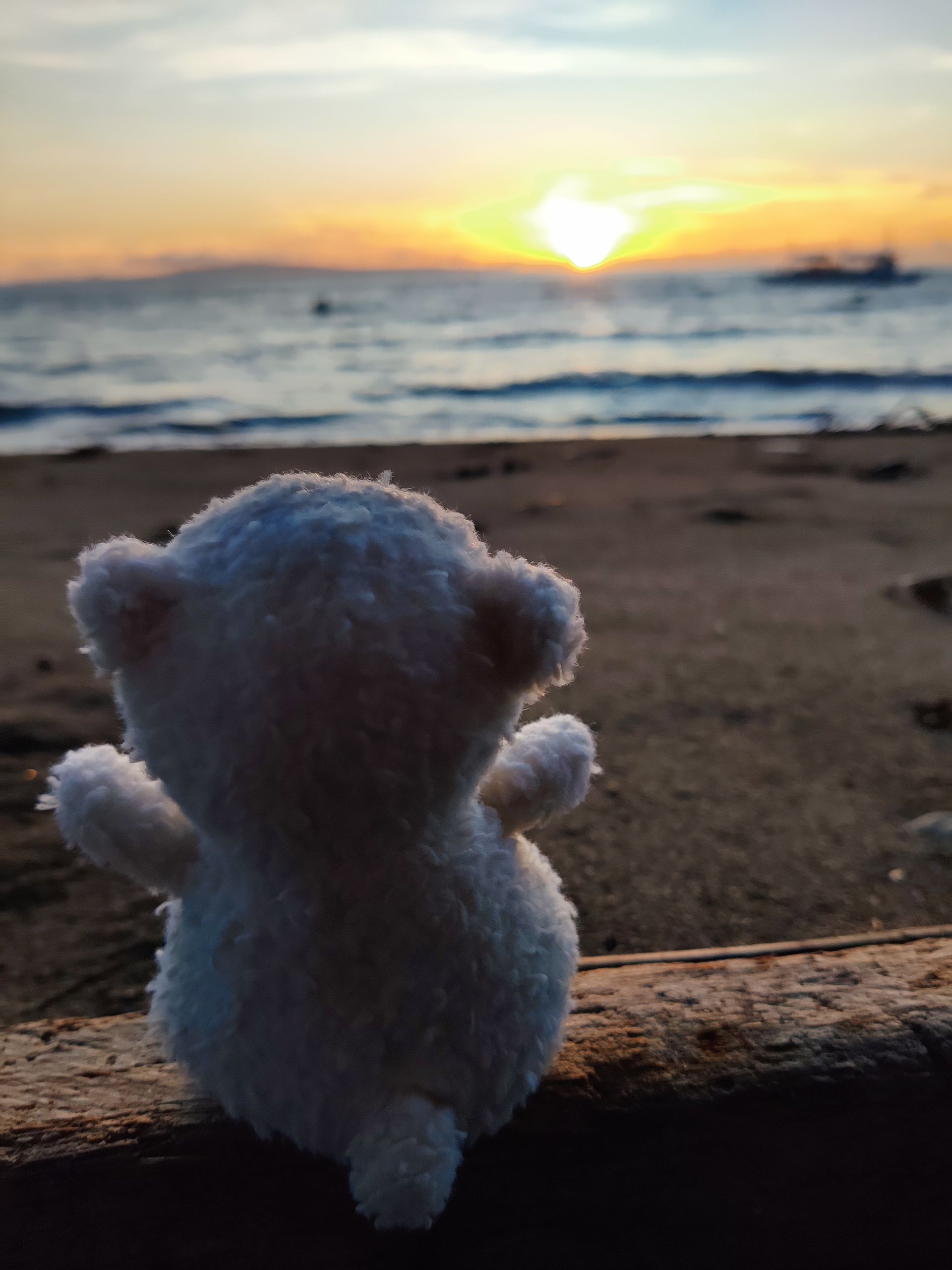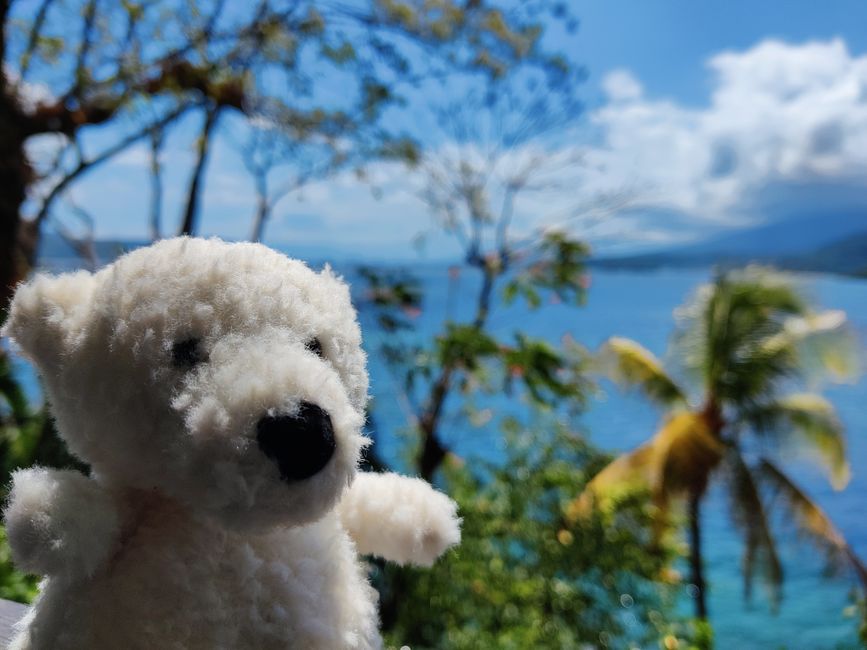Diving in Galapagos Part 1
Naipablaak: 17.02.2024
Agsubscribe iti Newsletter
As the title suggests, one article is not enough to provide an overview.
So here we go with the Tiburon Explorer, a supposedly luxury diving vessel that is only 2 years old. The highlight of the trip should be the islands of Wolf and Darwin, as these can only be reached by liveaboards.
The tour starts between the islands of Santa Cruz and Baltra. The next morning the first two dives along North Seymore, still relaxed with little current and to get along with the 7mm diving suits. The endemic nudibranch Tambja mullineri, which is only found here, is quickly found.
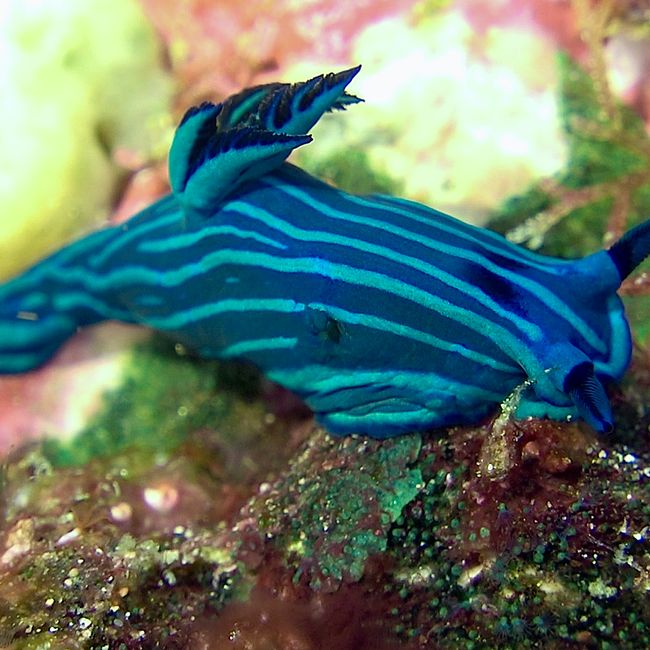
After a short shore excursion in the afternoon, we head north overnight to Wolf and Darwin. The next two days are characterized by 4-5 dives every day, sometimes with strong currents. And at 28 degrees Celsius, 3mm neoprene is also fine.
The abundance of fish here is gigantic! Large schools of many species cavort here in the very nutrient-rich water.
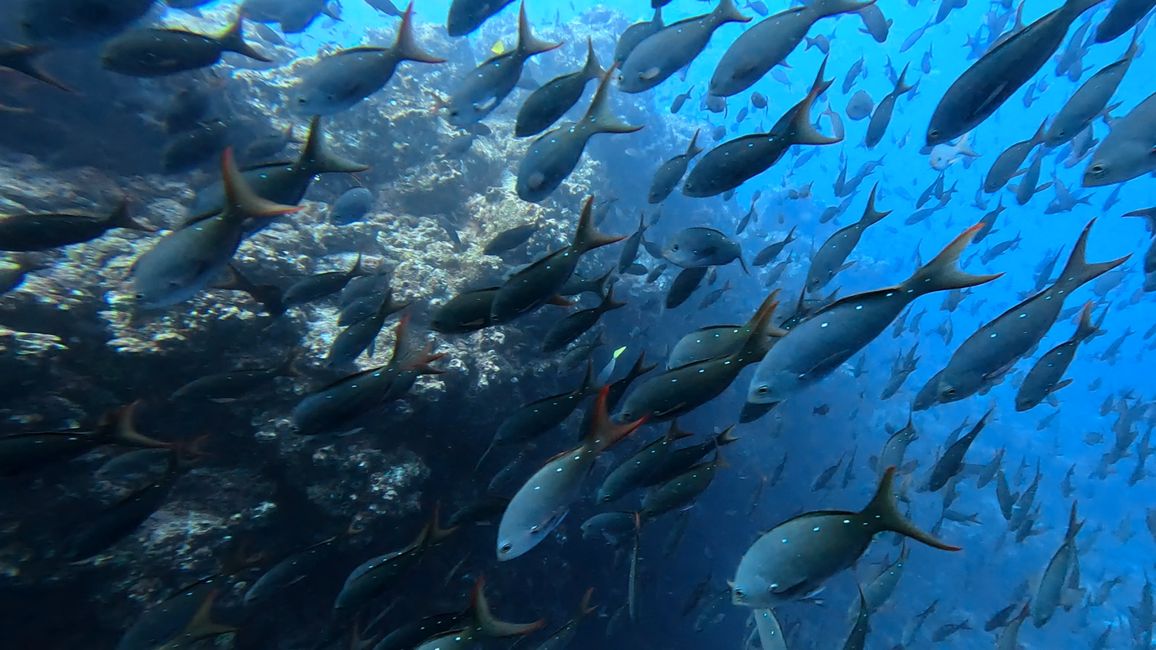
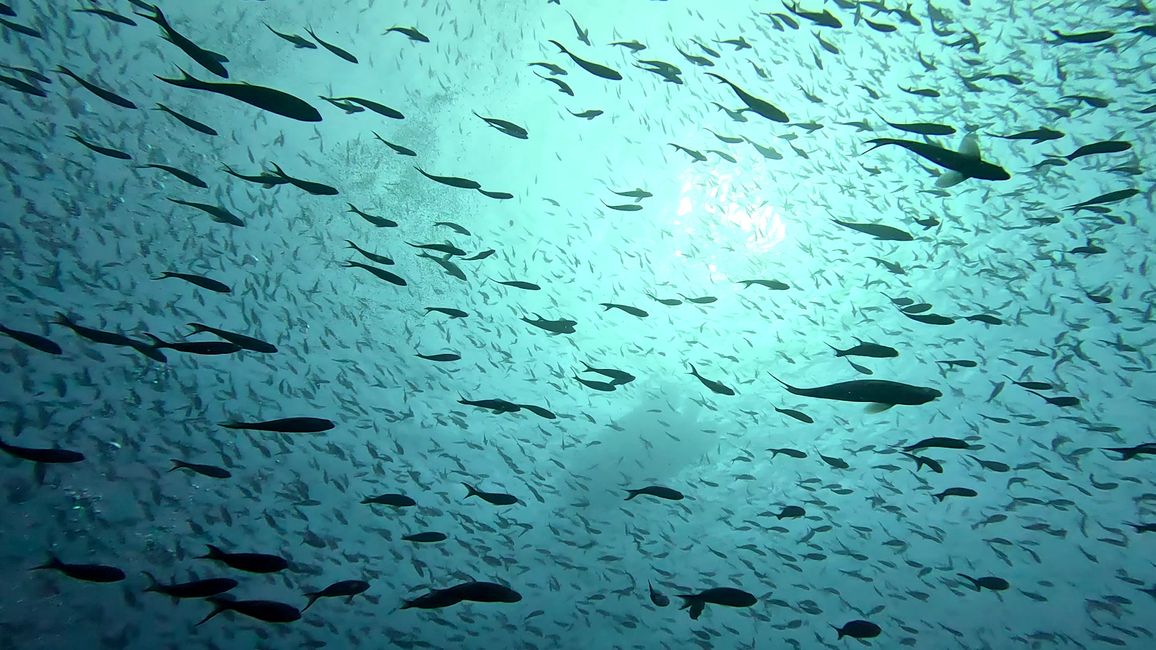
Because of this and also due to the stratification of water with a temperature difference of sometimes 5 degrees (thermocline), the “clear” visibility is only 10-15 m, usually less.
After entering the water we see a large group of around 100 dolphins in the “blue”. We dive into the group and are like in a trance. The dolphins are curious, play with us, come again and again and again. Wonderful!!
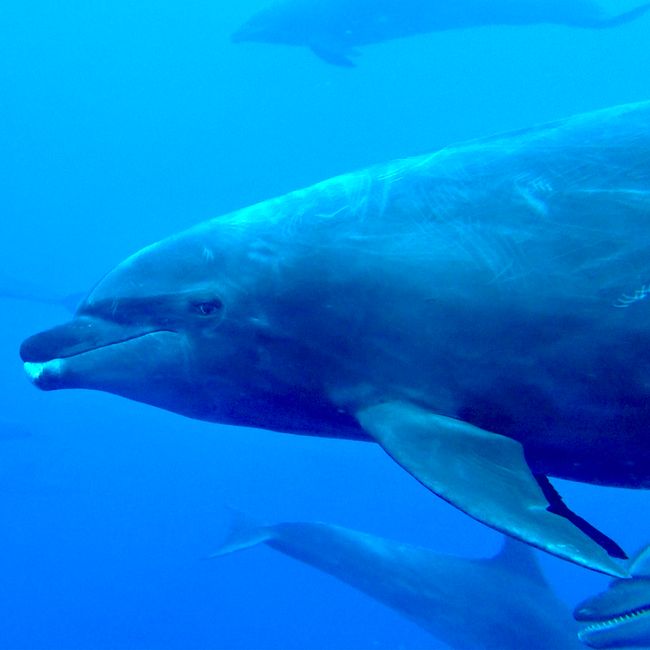
Their songs and noises are an additional sensory perception and all in all it is a unique experience lasting about half an hour (!), which is deeply ingrained in the memory.
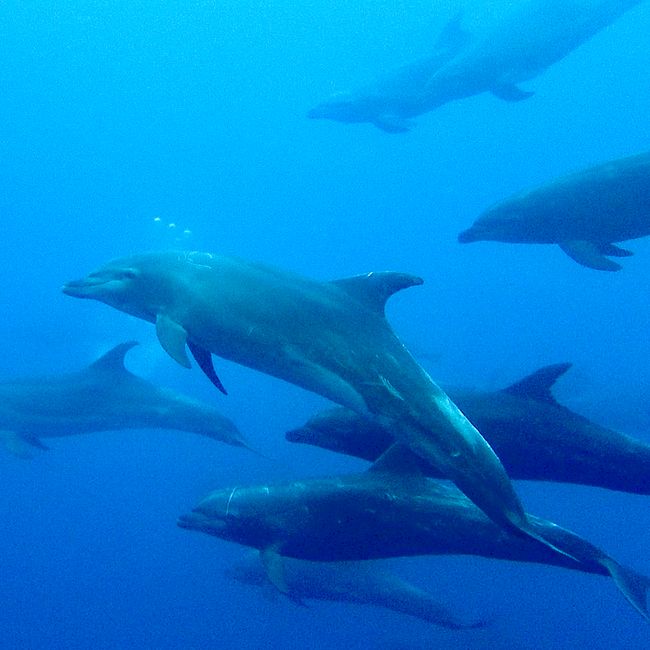
Other dives are characterized by medium to strong currents and you can only watch the silent procession of 30-50 hammerhead sharks if you hold on to one of the rocks.
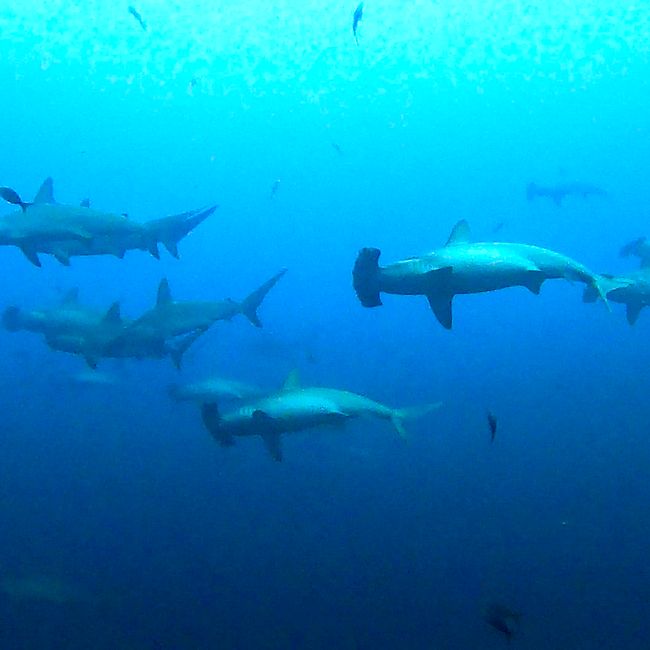
The variety of shark species (tiger shark, Galapagos shark, silky shark, white tip reef shark…) is once again impressive.
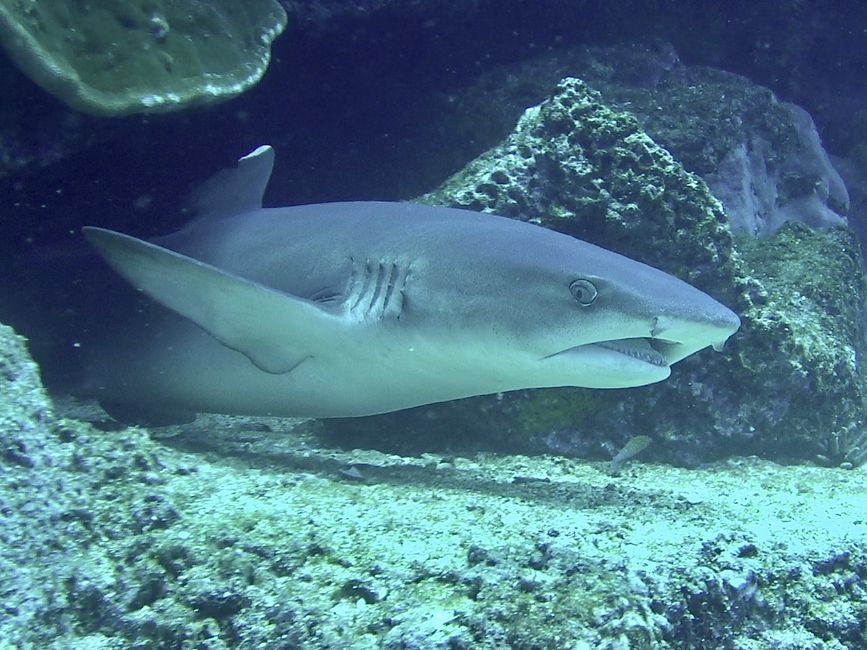
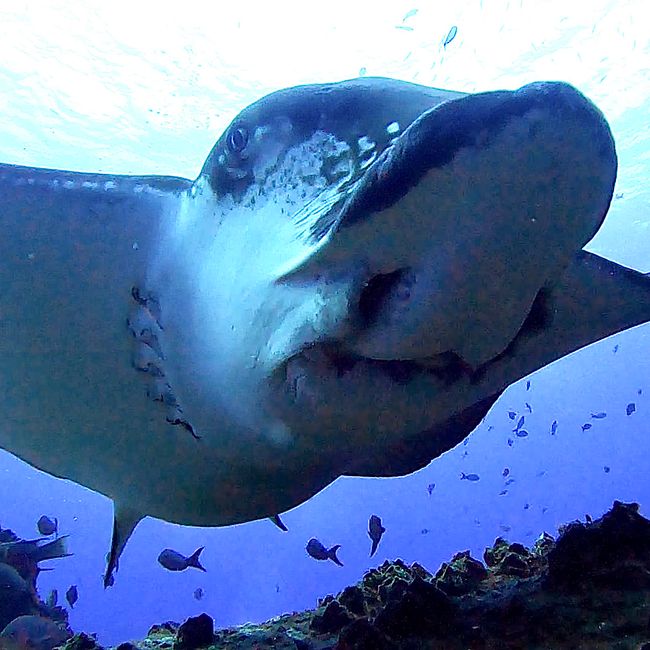
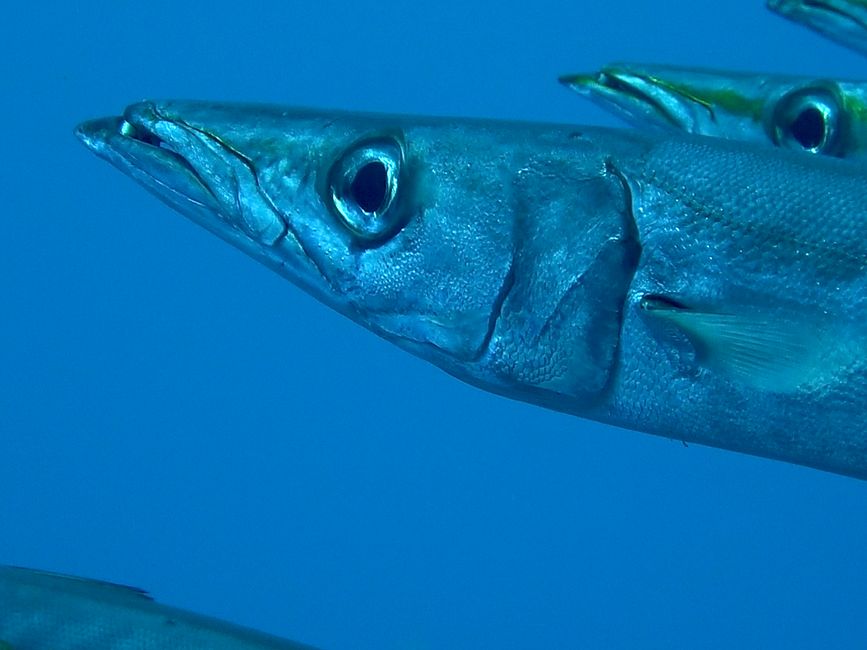
And of course, as you would expect in the Galapagos: turtles.
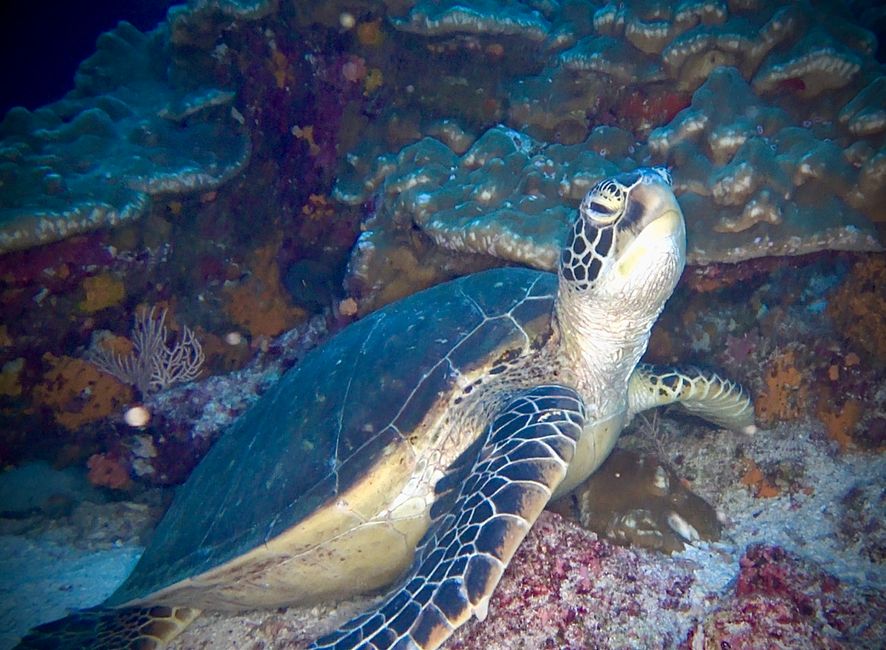
Most animals above and below water are not shy and come very close. Although there is a temptation to want to touch them, you should definitely not do so.
You have to keep reminding yourself that we are not in a zoo here, and it is a deeply felt privilege to be able to experience seemingly untouched nature in this diversity. Hopefully such nature reserves will be preserved for a long time.
More in part 2 in the next few days
Agsubscribe iti Newsletter
Sungbat
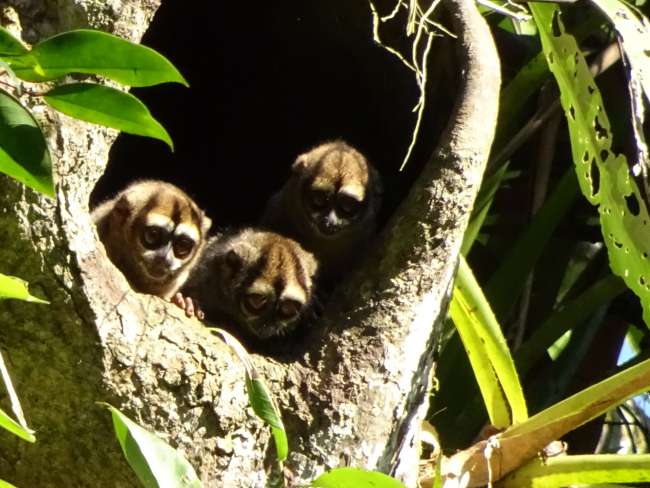
Dagiti report ti panagbiahe Ecuador
